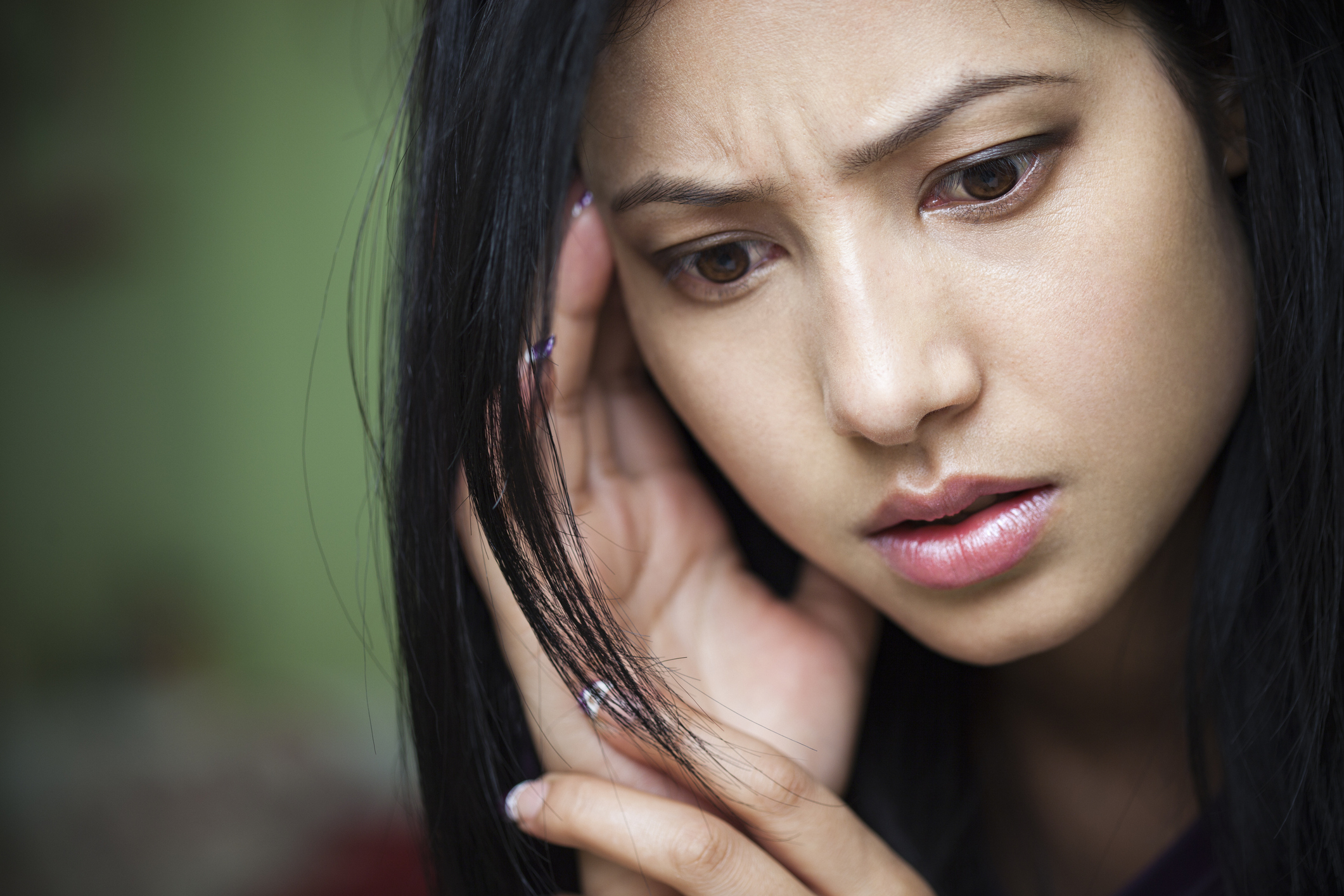Are You Are Depressed or Just Sad?

(This content is being used for illustrative purposes only; any person depicted in the content is a model)
As someone who struggles with depression, I’ve struggled to decipher the moments in my life when I was depressed from the moments in my life when I was sad. Therefore, when I read a recent article, it reminded me that this is often a gray area.
The clearest way I decipher depression from sadness is asking myself whether I feel hopeless or not. When I am sad, it’s usually about a certain situation or unfortunate outcome. When I am depressed, it’s about a multitude of things, and I have no hope in things getting better.While I can rationalize from that way of thinking, in that specific moment, I do not feel like anything will change.
For me, depression can last a few hours, or it can last a few weeks. Often, a sad situation will trigger a depressive episode. Different sad moments in my life can compile and eventually my frame of thinking will change to a more hopeless demeanor.
For many, it can be difficult to distinguish a normal rough patch of life from actual clinical depression. In fact, until I entered therapy, I went years without realizing I was depressed. I just thought I was sad, but sad people do not have intense feelings of hopelessness.
Read the 5 signs below to determine if your blue mood could be something more.
-
You feel sad about everything.
Sadness usually relates to a specific situation. You could be sad because you lost a job, are going through a breakup or maybe you are struggling financially. However, feeling sad about life can be a major sign of depression. Can you honestly pinpoint exactly why you are feeling down? If not, you might have something more going on.
-
Things are less enjoyable than they once were.
If suddenly all the things you used to enjoy do not bring you pleasure or energy, depression could be a factor. Depression denies our excitement, pleasure, and happiness. When you are sad, typically going out with friends or doing a fun activity can help lift your mood. Depression strips away the ability to be happy, even after participating in activities that usually bring happiness.
-
You can’t simply snap out of it.
If you are experiencing sadness for a long period, you can typically snap yourself out it. You are more able to acknowledge that the sadness has persisted for too long. However, people with depression cannot simply choose happiness or change their mindset. Those with clinical depression need help from a professional or need to change their regimen to see improvements. While some people with depression can exercise and eat healthier to get better, others are too far in the hole and need professional help to help with those chemicals.
-
You can’t find motivation.
The one thing people do not understand about depression is how tired and lethargic it makes you feel. It feels impossible to get anything done. People with depression struggle to get out of bed. On the other hand, a sad person may not want to engage in regular activities, but they do so anyway. A sad person is likely to put their negative energy into something positive like exercising and writing, while a depressive person will find these tasks daunting.
-
You see changes in your appetite or weight.
While it is normal to gain or lose weight; people with depression may use eating to cope or may stop eating due to feeling down. If you notice changes in appetite or weight, it is often a symptom of depression. Though people with sadness may see changes in appetite, it usually is temporary and does not last a long period.
Experiencing one of these symptoms for a short period doesn’t necessarily mean that you are depressed. However, if how you function has changed tremendously, that is a good sign you could be struggling.
Depression is often stigmatized, but more than 16 million Americans struggle with depression, according to the National Alliance on Mental Illness. Still, many do not know they are depressed and believe that this is how they will always be.
Depression is a chemical imbalance that needs to be addressed. Please reach out for help if you are struggling. You are not alone. If you or someone you love is struggling with substance abuse or mental illness, please call now 1-800-777-9588.
Author: Shernide Delva
